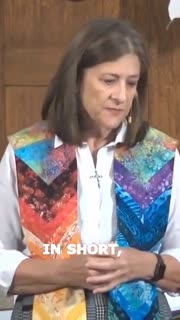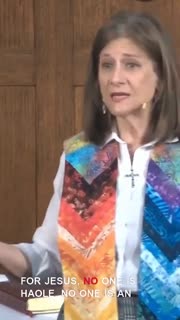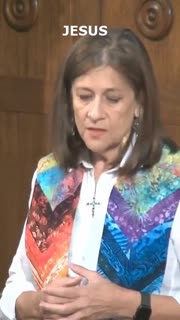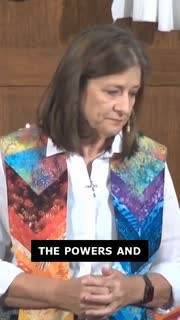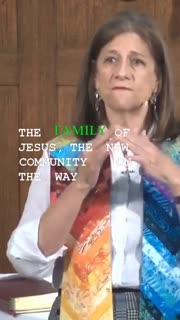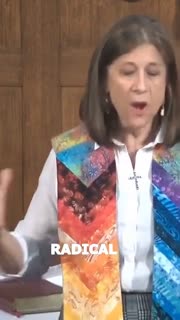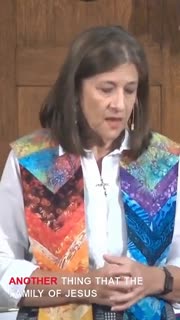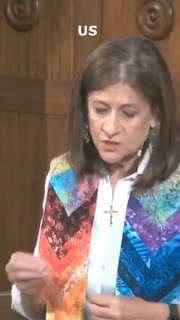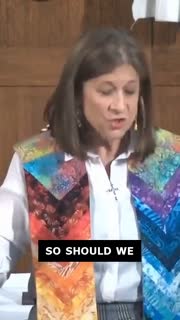Redefining Family: Embracing Radical Hospitality and Justice
Devotional
Sermon Summary
Bible Study Guide
Sermon Clips
### Quotes for outreach
1. "Radical hospitality in the way of Jesus will have you seeking to sit with a person you don't know who looks new or who looks lonely or who doesn't know what to do, before you go catch up with your friends. Radical hospitality in the way of Jesus will have you drinking heaven only knows what with people you never thought you would mix with, the likes of which you never thought you would hang around with." [03:20] (33 seconds)
2. "For Jesus, no one is haole. No one is an outsider. No one doesn't belong. We are family in that way. And in the way of opposites so common to Jesus. For us, we make real family by looking outward at who's not in. To make family as the people of Jesus, we look outside ourselves to see who's not yet in." [10:27] (35 seconds)
3. "Jesus is calling us to see all people as family, and that sounds lovely, but it is hard work, hard spiritual work. So we see our people and all people as our family." [12:13] (20 seconds)
4. "The powers and the principalities work against God's vision for us and we need to know that we need to know what God is calling us to do and we need to know what we're up against Jesus said you need to be wise as serpents and gentle as doves and most of us are a little lost but we need to be wise as serpents and gentle as doves and most of us are a little lost but we need to uncomfortable with the Jesus who wants us to be wise as serpents but it's important that we do this that we are assertive that we are aggressive that we are wise that we are even shrewd about building community inside this room and outside the building" [16:50] (46 seconds)
5. "If we live out of the desire for Jesus to open our eyes to people who need our help then yes and if we want to have the sense of belonging that God offers us no matter who we are where we've been or where our journey has taken us then yes we are a family I'm glad to be a part of this family I'm glad to be a part of this family I'm glad to be a part of this family I'm glad to be a part of this particular group of God's family in this season of my life and I hope you are too amen" [18:22] (38 seconds)
### Quotes for members
1. "The family of Jesus, the new community on the way of Jesus, the people who have joined his band of change makers in the way of Jesus, have three priorities. Three priorities. One is hospitality, the other is community, and a third is justice. Jesus sets only one criteria. For a family, and it's not birth, it's not marriage, it's not loyalty, it's doing the will of God. Anyone who does the will of God belongs to the family." [01:28] (43 seconds)
2. "In short, families are inwardly focused. That is not okay for the people of Jesus. Hospitality is outwardly focused, isn't it? Radical hospitality in the way of Jesus will have you seeking to sit with a person you don't know who looks new or who looks lonely or who doesn't know what to do, before you go catch up with your friends." [03:20] (34 seconds)
3. "Another thing that the family of Jesus is about is about community. We talk about that, here, as ministry beyond the building. So it's a church that is living in the community as a family of Jesus, is looking outside the building, but it's also looking outwardly in the building. I know that doesn't sound right, does it? It means as a group, we're also looking outward at our larger community, but we are also looking at the growing community here." [06:53] (38 seconds)
4. "Jesus told us that any decent person cares about their family, and we don't really get credit for loving the people who love us. What Jesus wants us to do is reach beyond that to strangers, to people outside, to people we don't like, and he means that so intently that we hear him say it a dozen different ways, a dozen different times, and it's the thing at which most of us really put up a barrier. It's the most difficult thing God asks us to do, which is to imagine that someone we don't like, someone we maybe even hate, maybe someone we think is beyond despicable, and to imagine that they are a member of our family." [12:13] (51 seconds)
5. "So should we call our church family if it means we're closing the door to others of course not if it means we seek to live into God's high calling and we can't count on each other for support then yes if we live out of the desire for Jesus to open our eyes to people who need our help then yes and if we want to have the sense of belonging that God offers us no matter who we are where we've been or where our journey has taken us then yes we are a family" [18:22] (39 seconds)
Ask a question about this sermon
1. "Radical hospitality in the way of Jesus will have you seeking to sit with a person you don't know who looks new or who looks lonely or who doesn't know what to do, before you go catch up with your friends. Radical hospitality in the way of Jesus will have you drinking heaven only knows what with people you never thought you would mix with, the likes of which you never thought you would hang around with." [03:20] (33 seconds)
2. "For Jesus, no one is haole. No one is an outsider. No one doesn't belong. We are family in that way. And in the way of opposites so common to Jesus. For us, we make real family by looking outward at who's not in. To make family as the people of Jesus, we look outside ourselves to see who's not yet in." [10:27] (35 seconds)
3. "Jesus is calling us to see all people as family, and that sounds lovely, but it is hard work, hard spiritual work. So we see our people and all people as our family." [12:13] (20 seconds)
4. "The powers and the principalities work against God's vision for us and we need to know that we need to know what God is calling us to do and we need to know what we're up against Jesus said you need to be wise as serpents and gentle as doves and most of us are a little lost but we need to be wise as serpents and gentle as doves and most of us are a little lost but we need to uncomfortable with the Jesus who wants us to be wise as serpents but it's important that we do this that we are assertive that we are aggressive that we are wise that we are even shrewd about building community inside this room and outside the building" [16:50] (46 seconds)
5. "If we live out of the desire for Jesus to open our eyes to people who need our help then yes and if we want to have the sense of belonging that God offers us no matter who we are where we've been or where our journey has taken us then yes we are a family I'm glad to be a part of this family I'm glad to be a part of this family I'm glad to be a part of this family I'm glad to be a part of this particular group of God's family in this season of my life and I hope you are too amen" [18:22] (38 seconds)
### Quotes for members
1. "The family of Jesus, the new community on the way of Jesus, the people who have joined his band of change makers in the way of Jesus, have three priorities. Three priorities. One is hospitality, the other is community, and a third is justice. Jesus sets only one criteria. For a family, and it's not birth, it's not marriage, it's not loyalty, it's doing the will of God. Anyone who does the will of God belongs to the family." [01:28] (43 seconds)
2. "In short, families are inwardly focused. That is not okay for the people of Jesus. Hospitality is outwardly focused, isn't it? Radical hospitality in the way of Jesus will have you seeking to sit with a person you don't know who looks new or who looks lonely or who doesn't know what to do, before you go catch up with your friends." [03:20] (34 seconds)
3. "Another thing that the family of Jesus is about is about community. We talk about that, here, as ministry beyond the building. So it's a church that is living in the community as a family of Jesus, is looking outside the building, but it's also looking outwardly in the building. I know that doesn't sound right, does it? It means as a group, we're also looking outward at our larger community, but we are also looking at the growing community here." [06:53] (38 seconds)
4. "Jesus told us that any decent person cares about their family, and we don't really get credit for loving the people who love us. What Jesus wants us to do is reach beyond that to strangers, to people outside, to people we don't like, and he means that so intently that we hear him say it a dozen different ways, a dozen different times, and it's the thing at which most of us really put up a barrier. It's the most difficult thing God asks us to do, which is to imagine that someone we don't like, someone we maybe even hate, maybe someone we think is beyond despicable, and to imagine that they are a member of our family." [12:13] (51 seconds)
5. "So should we call our church family if it means we're closing the door to others of course not if it means we seek to live into God's high calling and we can't count on each other for support then yes if we live out of the desire for Jesus to open our eyes to people who need our help then yes and if we want to have the sense of belonging that God offers us no matter who we are where we've been or where our journey has taken us then yes we are a family" [18:22] (39 seconds)
